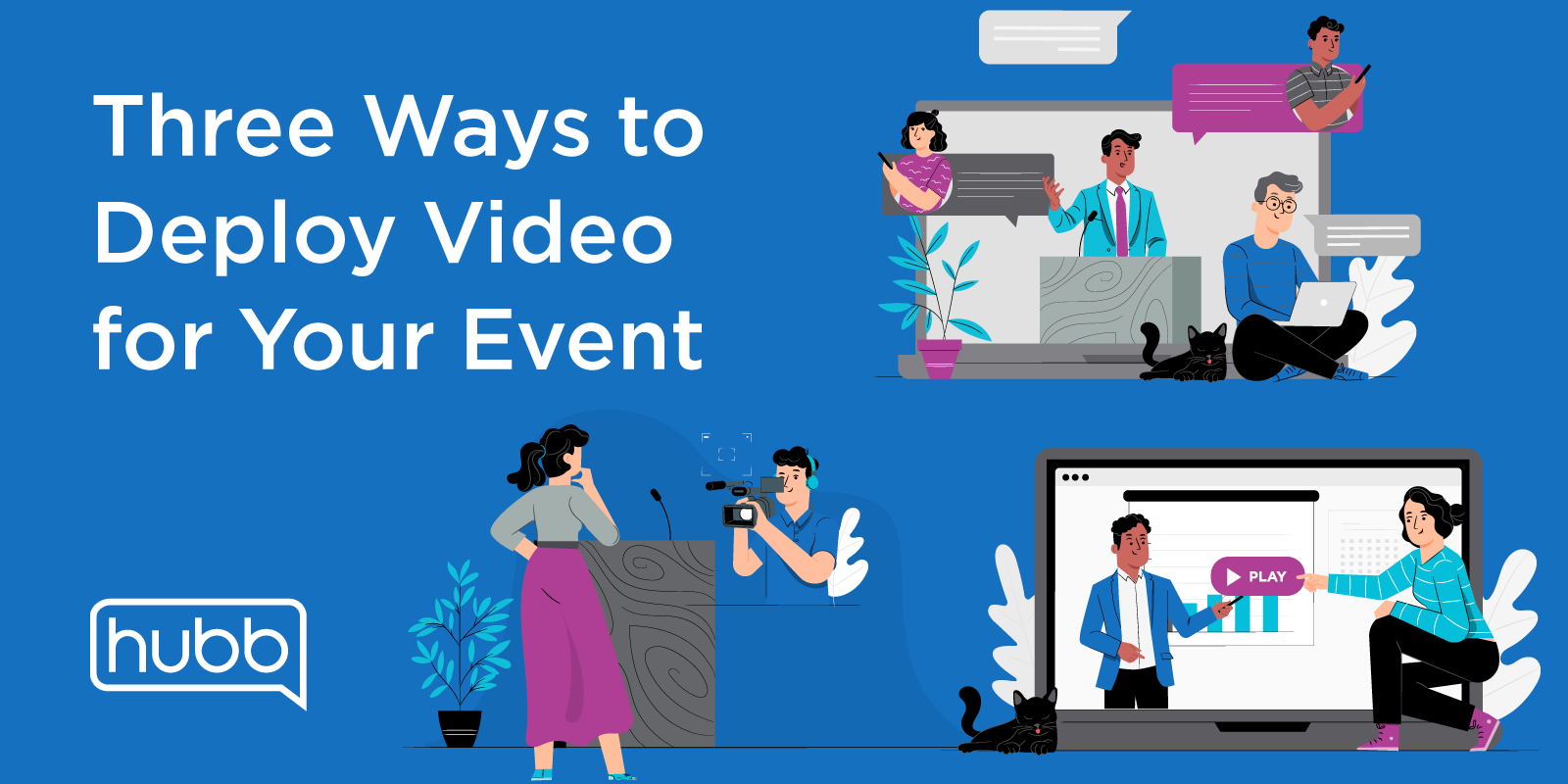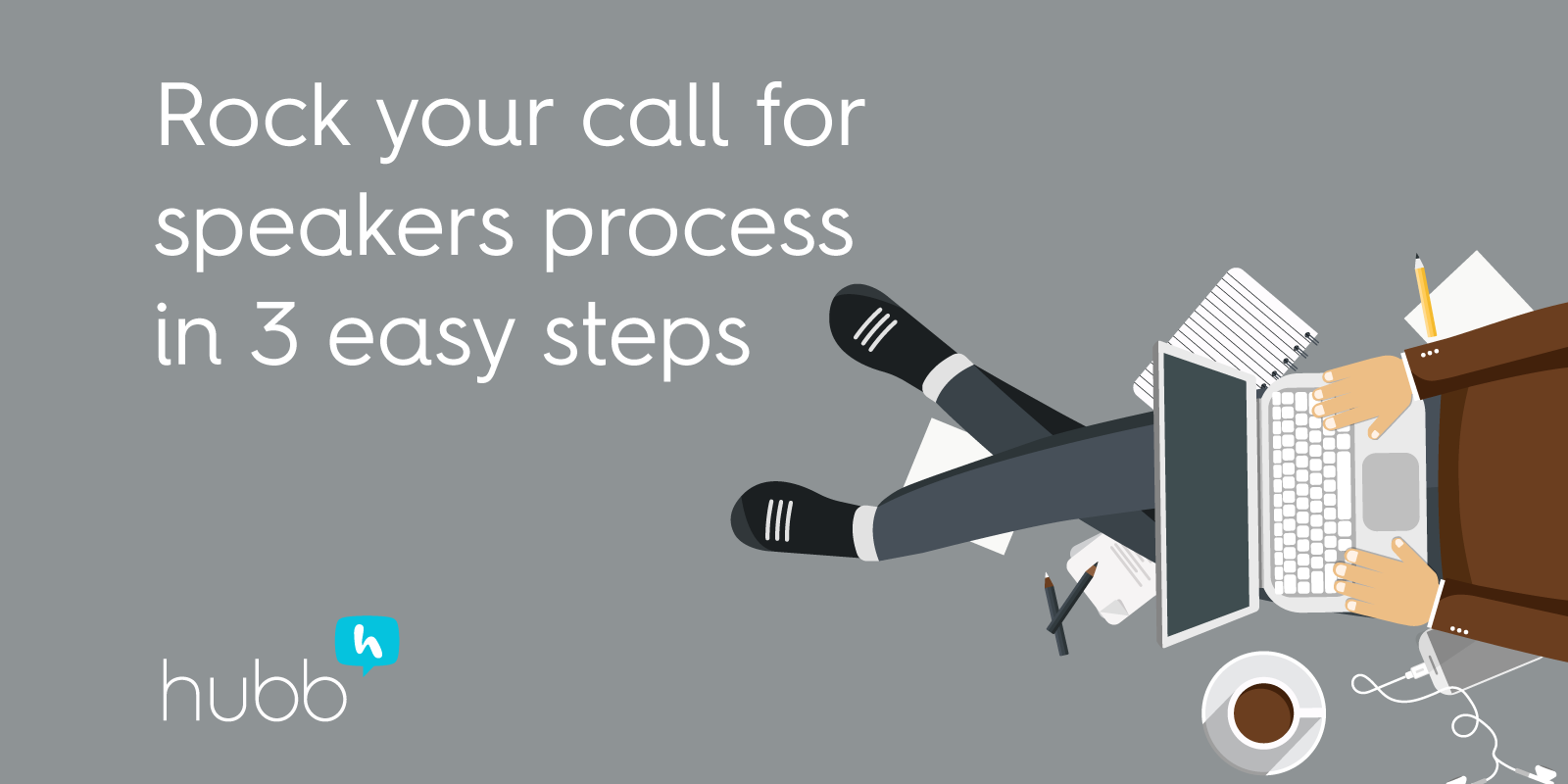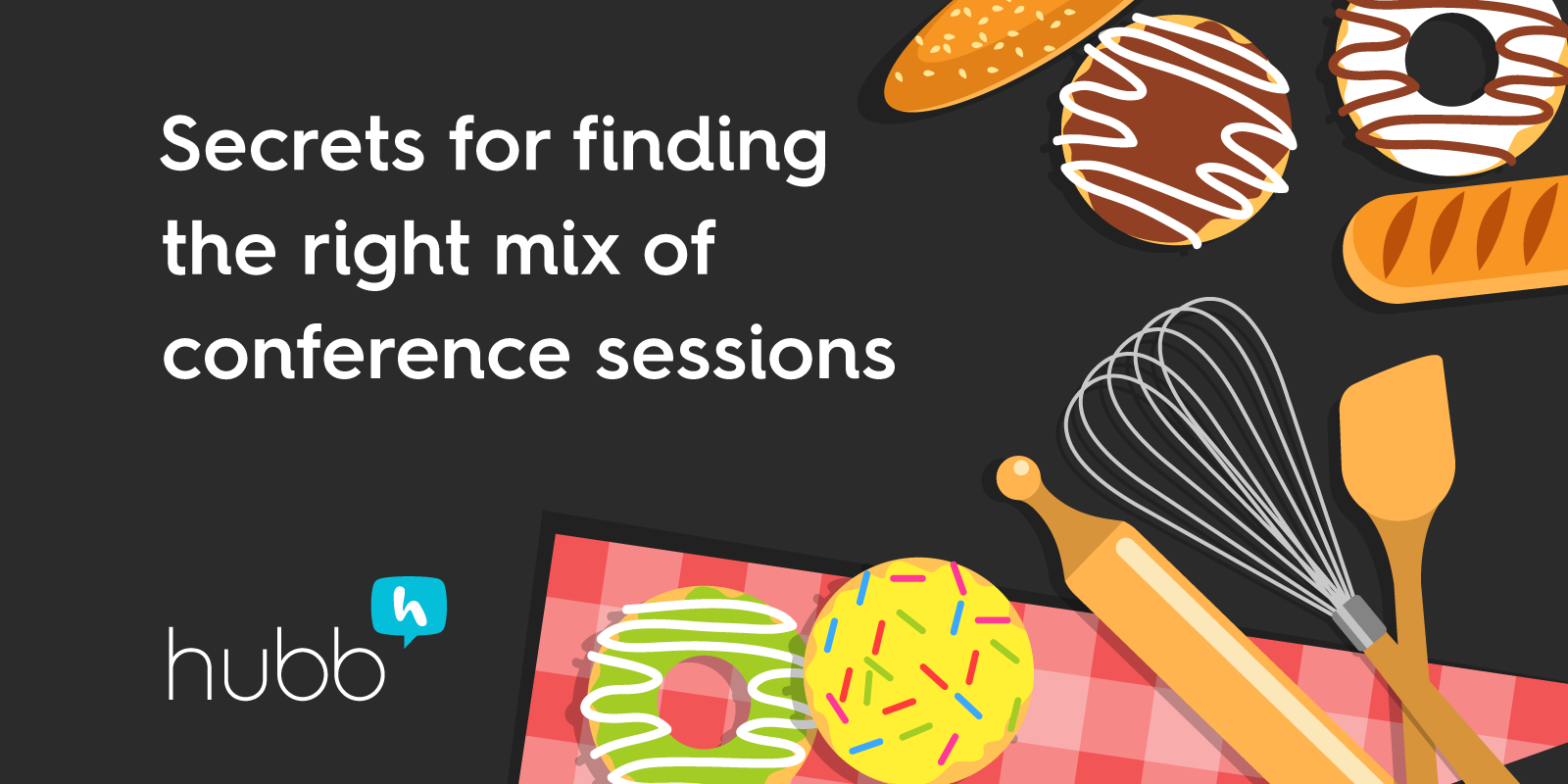
...the peanut butter in your event sandwich
OK, if you’re a regular reader of the Hubb blog, by now you know what event content is and what an event content management system does. But what do you know about the people behind the event content? What does an event content manager do and why is this role crucial to your event’s success?
If your event were a peanut butter and jelly sandwich (yum!), event content managers would be the peanut butter. They are the people who lead the content and speaker management process, which create the protein and fat to provide substance in your event sandwich.
At the core, this role’s primary responsibility is to determine an overall content strategy, which would include different learning types and sessions. They then execute the planning process to manage all sessions, speakers and related logistics, and after the event, report on these details, using data to fine-tune their event content strategy.
This role is crucial because your event’s content is what attracts your attendees. It’s why people select your conference over another because your speakers and presentations are relevant to who they are and what they do. And, more importantly, to who they want to be and what they want to do.
1. Event Content Manager Job Description
Here are excerpts of the job description used by our sister company Dynamic Events when they are recruiting event content managers:
- Engage key stakeholders at the start of the content planning process to identify the content strategy and organizational goals mapped to overall event themes
- Identify content needs and manage content development process for all events end-to-end including project management, production timelines, event agenda, space allocation and rhythm of business among content stakeholders
- Schedule and run conference calls and meetings with key participants including meeting agendas, resources and meeting notes
- Create event agenda with key stakeholders to optimize attendee flow, different learning styles, venue capacity, speaker skills, and event goals and objectives
- Hands-on, daily management of all session and speaker logistics including session details, speaker assignments, and profiles, session scheduling, proofreading, PowerPoint presentations, session tagging, and more
- Manage speaker communications including Call for Presentations, travel and expenses guidance and invitations, submission status, and speaker preparation
- Identify and manage best onsite delivery, and session types for all content including room sets, space planning, and A/V needs
- Schedule and manage production meetings and speaker rehearsals
- Measure results (evaluations, attendance, feedback) on all content and communicate findings back to key stakeholders. Modify processes to adopt best practices and incorporate feedback as appropriate
2. How is this role different than a marketing content manager?
Next, you’ve got your marketing content manager. Depending on the scale of your event, these two roles (event content manager and marketing content manager) may fall under the responsibility of one person, or they may be separate roles on your marketing team entirely. Or, if your conference is huge or you’re in charge of multiple events or work for an event agency, a team of people may collaborate on these responsibilities.
If we revisit our event sandwich, this job would be the jelly. Yes, the peanut butter is what people are coming to your event for, but that jelly is the sweetness that attracts the attendees.
Essentially, your marketing content manager (or strategist…or specialist) is the person who takes that fantastic content generated by speakers at your event (videos, slide decks, bios, photos), and converts them into bite-size content snippets that tell the story of who your company is and how you’re serving your industry. When we talk about extending the life of your event content, this is the person who develops a strategy to leverage your event content into new formats to be distributed on a variety of marketing distribution channels (email, social media, website, advertising, affiliate marketing, etc.).
Typically, the purpose of that strategy is to attract your target audience so you can build a relationship through the offer of valuable, relevant content, and ultimately convert those people into customers. And, if you’re great at what you do, turn those customers into raving fans who tell all their colleagues about your amazing company and/or conference.
3. What does the event content management cycle look like?
If your event content manager and your marketing content manager are working in sync, here’s what that cycle might look like:
- Develop your event content strategy
- Market conference call for content
- Select speakers
- Coordinate with speakers pre-event to acquire bios, photos, slide decks
- Market content provided by speakers to attract attendees to the event
- Work with speakers on A/V needs, coordinate rehearsals, other day-of logistics
- Document presentations on video and photo
- Re-purpose event content (videos, decks) into marketing content to be used year-round
- Analyze data and analytics from event surveys + marketing engagement
- Use outcomes to refine event content strategy
One speaker session can be repurposed for thought leadership marketing in so many ways. Here are a few examples:
- Videos: Short highlight videos for social media or full-length videos posted to your website
- Guides, checklists or tip sheets
- Notes/transcripts: Post on your website for that sweet, sweet SEO
- Blog posts: Share that fantastic information in a blog post, optimized for organic search
- Podcasts: Convert audio excerpts and add intro's and outro's or other commentaries
- Infographics
- Social media: Share videos, quotes or images from the presentation
4. Skills and abilities for an event content manager
Your event content manager is the linchpin of your entire event strategy. They are shaping the content that will be the foundation of your event, and all the marketing that comes before and after.
To be great at this job, a candidate should be:
- Extremely organized and process-oriented
- Self-directed and resourceful
- Adaptable and calm in high-stress, tight deadline situations and patient in the face of changing priorities
- Great communicator with strong customer service skills who can interact well with people at all levels, from waitstaff to CEOs
- An ability to work collaboratively in a cross-functional team environment
If you’re new here and considering a career in event management, check out our blog on the top 6 skills you’ll need to rock your job.
5. Tools of the trade: Event Content Management System
There was a time when event content-related tasks were managed with Excel spreadsheets and thousands of emails. During that time, event planning earned its harsh reputation as an industry tainted by burnout and stress.
It doesn’t need to be that way. With event content management tools like Hubb, administrative tasks can be handled in 65% less time, leaving your team capacity to focus on strategy and innovation. You know, the things that make your events super successful.
Another benefit to using an event content management system is that it provides a single source of truth, facilitating collaboration among the members of your event team. Anyone can access the most up-to-date speaker information, slide decks, and related event content.
 We've covered some of the approaches used by top event content strategists into our guide, Advanced Content Strategy. Download it now!
We've covered some of the approaches used by top event content strategists into our guide, Advanced Content Strategy. Download it now!






![[Infographic] Event content by the numbers](https://1925165.fs1.hubspotusercontent-na1.net/hubfs/1925165/EventContent-by-the-Numbers-Social.png)
